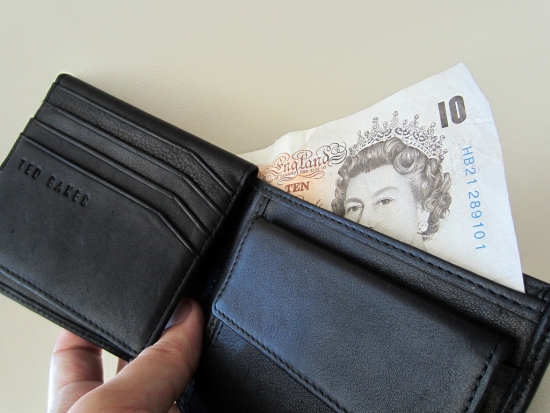The end of one of the longest recessions in living memory should surely be something to celebrate – disposable income is expected to rise while inflation drops, businesses can finally begin investing again and the mass closing of retail outlets should hopefully slow significantly in the coming months. More importantly, workers can relax slightly with increased job security and an end to pay freezes as a result of higher turnover by the companies they work for.

Unfortunately, four years of recession does tend to leave an impression on consumers, with many reluctant to part with their cash until they deem it safe to spend again. In fact, GfK’s Consumer Confidence Index Score is currently the lowest it has been in six months – indicating that a spending boom will not be appearing on the retail horizon any time soon.
The Consumer Confidence Index collates the responses of 2000 participants in order to give an average of how positively or negatively the general population feel towards spending money in the retail industry. In September, the UK score was -28, however this dropped to -30 in October despite the fact that the UK emerged from recession early in the month.
Participants felt less optimistic both about their own personal finances and the UK economy as a whole over the next 12 months, with the overwhelming majority stating that they would not be making any major purchases in the next year.
Managing director of social research at GfK, Nick Moon, says; “Just as the economy moves out of recession consumer confidence dips again. While we are not quite back to the levels of this time last year, the index has not been this low in six months.
“While the Olympics are thought to have boosted GDP in the last quarter, the late summer boost in consumer sentiment has now faded. The Government will be concerned that the economic bounce will follow a similar path and deflate during the autumn.
“The fragility of the recovery is underlined by the fact that people are more worried about their own financial situation over the next 12 months. This certainly does not suggest there will be a spending boom on the back of the official emergence from recession.”
Essentially what this means is that, in not having the confidence to spend, consumers could well be damaging the still fragile economy, thus making it more likely that the UK will slide backwards rather than progress into a time of credit.
However, consumers can hardly be blamed for their hesitancy in splashing the cash. In 2009, people tended to spend more than today as economic recovery seemed to be on its way. Four years later, cynicism has set in, and although the UK has recovered to a certain point consumers cannot trust in this fact alone.
Additionally, the rising cost of fuel and consecutive years of pay freezes has left many workers with debts incurred, often to pay day loan companies or banks in which interest is a very pressing factor. The majority of consumers will want to wipe out any debt while inflation remains relatively low – just in case Britain slips back into the recession we struggled so desperately to leave.
Do you still feel hesitant about spending money on luxury items, even though the recession is no longer a factor in the UK retail industry? How do you think retailers could encourage consumers to begin spending in earnest again, or do you think consumers are now so used to saving that the face of the retail industry in the UK has changed irreversibly?
Previous Post
Counting the Retail Cost of Hurricane Sandy